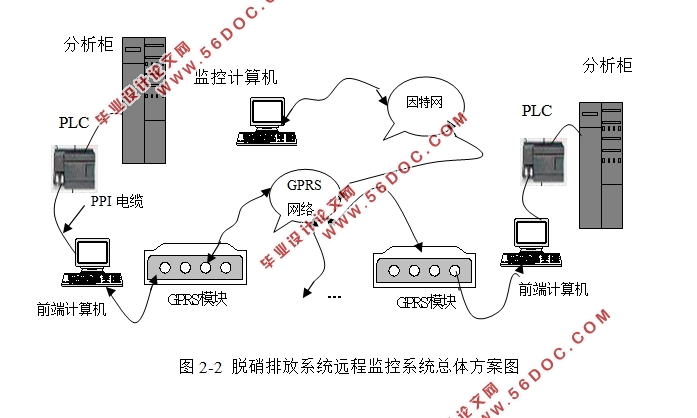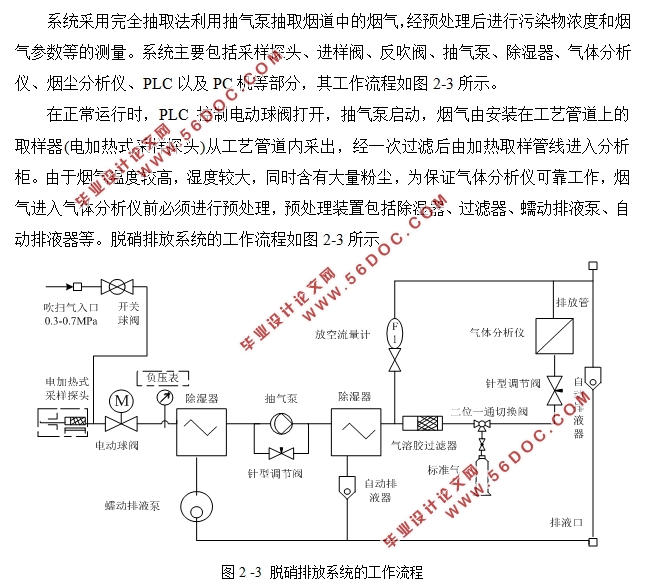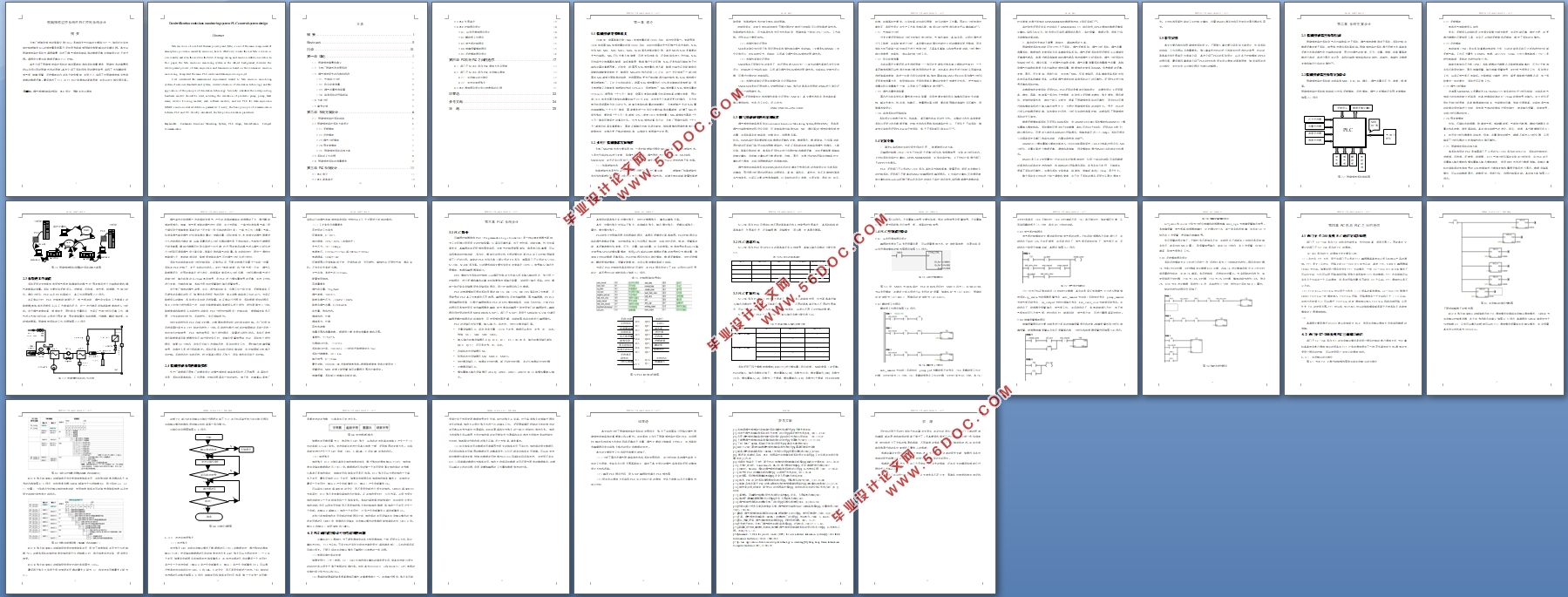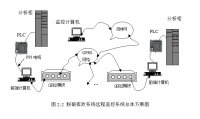脱硝排放监控系统的PLC控制系统设计(任务书,开题报告,外文翻译,论文说明书13000字)
摘 要
火电厂燃煤中排放的氮氧化物(NOx)是造成大气污染的主要成分之一,如何经济有效地控制燃煤中NOx的排放量是我国乃至世界节能减排领域中急需解决的关键问题。本文以脱硝排放监控系统为课题背景,论述了烟气排放连续监测的数据采集与传输设计的开发过程。课题中主要完成数据采集与PLC控制。
首先介绍了脱硝排放监控系统的相关国家标准和系统测量要求,脱硝技术的背景现状以及所应用的脱硝技术的原理。其次介绍了系统所选用的硬件型号,实现了包括蠕动泵,抽气泵,故障报警,反吹模块在内的各个软件模块,并用PLC实现了对脱硝排放相关检测参数的数据采集。最后简述了PLC与PC机之间通信的基本原理,自由口的初始化程序等。
关键字:烟气排放连续监控系统 PLC 设计 脱硝 自由口通信
Denitrification emissions monitoring system PLC control system design
Abstract
NOx emission of coal-fired thermal power plant (NOx) is one of the main components of atmospheric pollution caused by emissions, how to effectively control the coal NOx is critical in our country and even the world in the field of energy saving and emission reduction solution. In this paper, the NOx emissions monitoring system as the subject background, discusses the development process of data acquisition and transmission based on the continuous emission monitoring. Completed the main PLC control and data acquisition project.
First introduced the measurement requirements related to NOx emission monitoring system of national standards and system, current situation of denitration technology and the application of the principle of denitration technology. Secondly introduces the corresponding hardware models should be used, including the realization of peristaltic pump, pump, fault alarm, reverse blowing module, each software module, and use PLC for data acquisition DeNOx emissions related detection parameters. Finally, the basic principle of communication between PLC and PC is briefly introduced, the free port initialization procedures.
Keywords: Continuous Emissions Monitoring System; PLC design; Denitrification Free-port Communication



目录
摘 要 I
Abstract II
目录 III
第一章 绪论 1
1.1 脱硝排放背景和意义 1
1.2 火电厂脱硝技术发展现状 1
1.3 烟气排放研究的内容和现状 2
1.3.1 气体成分分析 3
1.3.2 粉尘浓度测量 3
1.3.3 烟气流量检测装置 3
1.3.4 监测系统的网络构架 3
1.4方案分析 3
1.5章节安排 5
第二章 系统方案设计 6
2.1 脱硝排放监控系统组成 6
2.2脱硝排放监控系统方案设计 6
2.2.1采样模块 7
2.2.2反吹模块 7
2.2.3烟气分析模块 7
2.2.4预处理模块 7
2.2.5 脱硝排放系统总体方案 7
2.3系统的工作流程 8
2.4 脱硝排放系统的测量要求 9
第三章 PLC系统设计 11
3.1 PLC简介 11
3.2 PLC基本单元 13
3.3 PLC扩展单元 13
3.4 PLC控制程序设计 14
3.4.1 以太网通信程序设计 14
3.4.2蠕动泵工作程序 14
3.4.3抽气泵控制程序 15
3.4.4故障报警模块程序 15
3.4.5反吹模块程序设计 16
第四章 PC机与PLC之间的通信 17
4.1 西门子S7-200系列PLC通信方式及原理 17
4.2 西门子S7-200系列PLC自由端口通信 17
4.2.1 自由端口的初始化 17
4.2.2 发送与接受指令 20
4.3 PLC通信程序设计中应考虑到的问题 21
结束语 23
参考文献 24
致 谢 25
|







